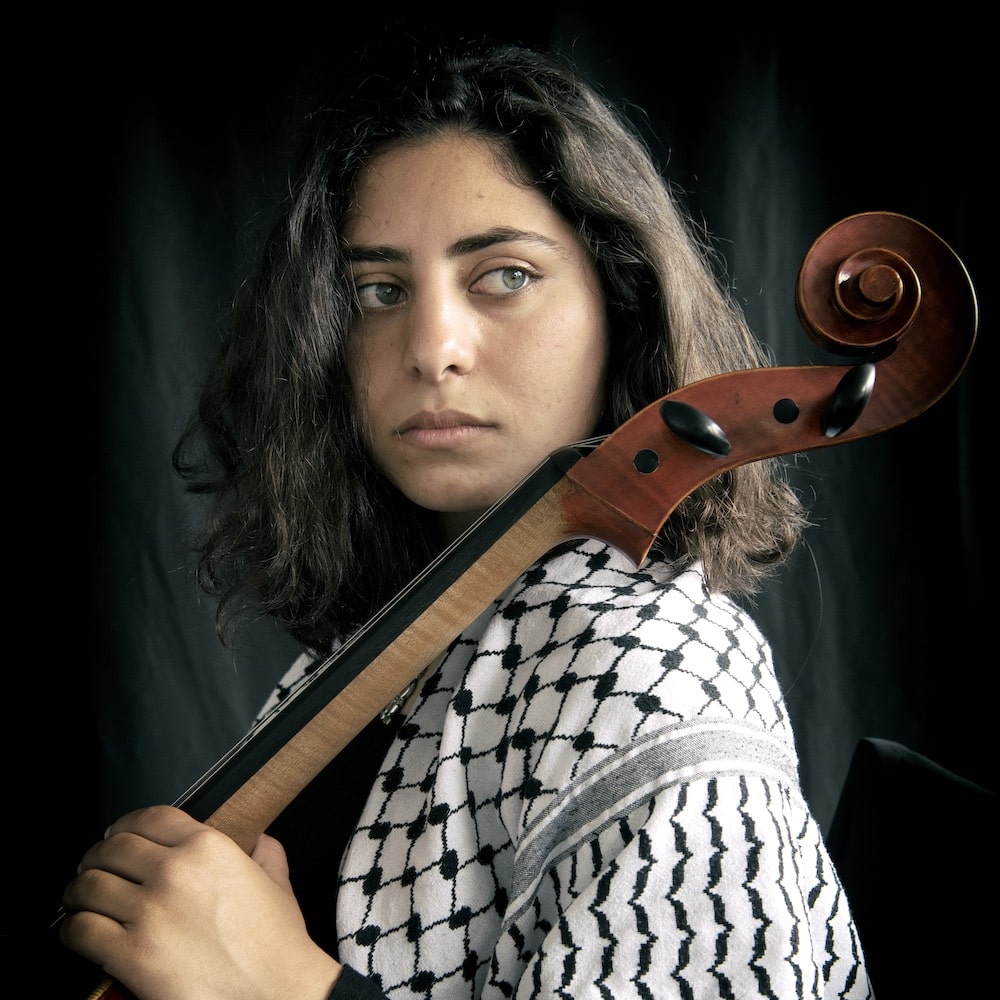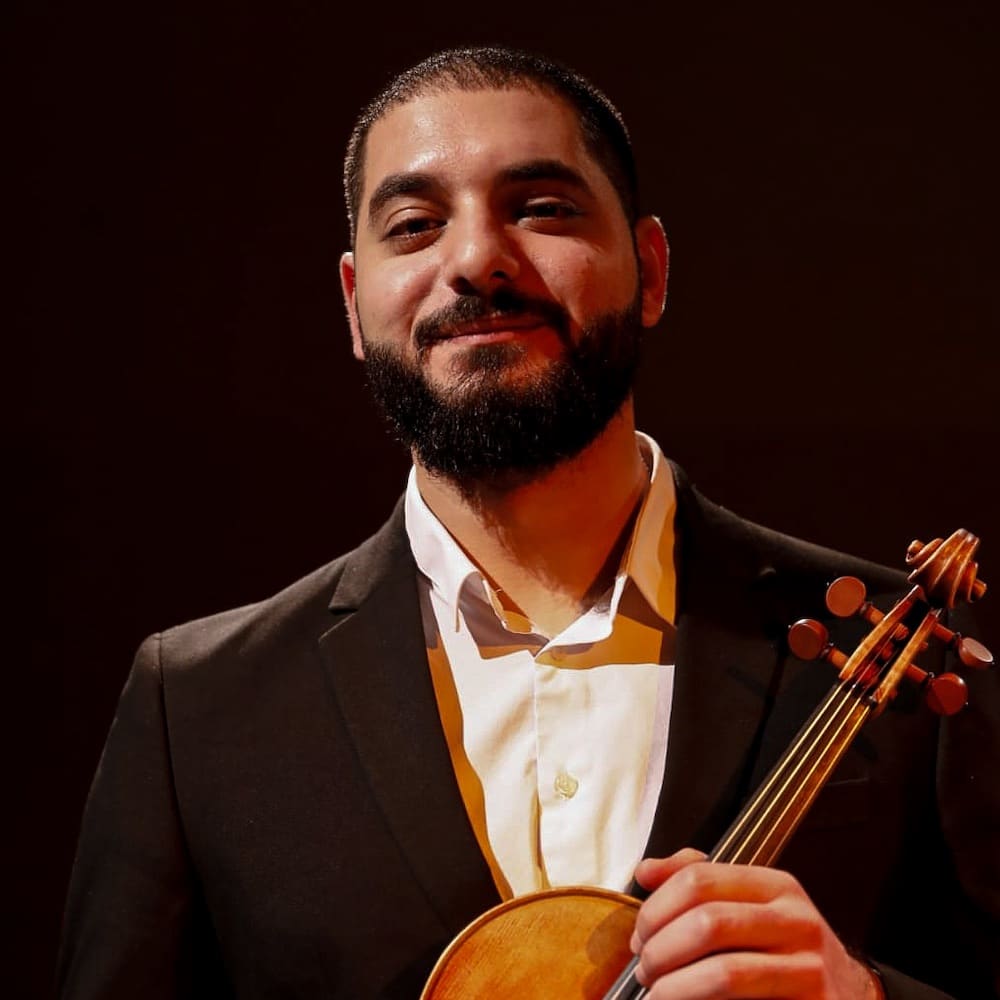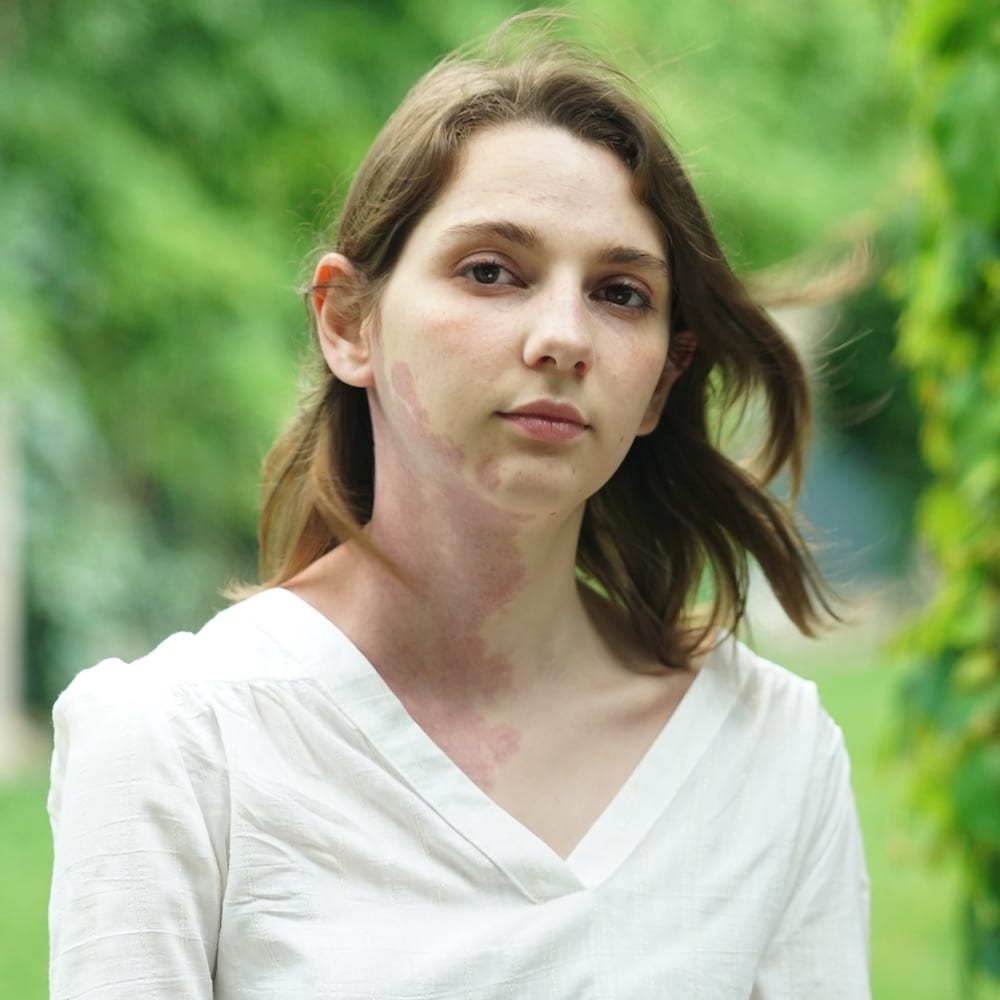
Tibah Saad
Tibah is a cellist and member of the Galilée quartet, which she forms with her siblings, Mostafa, Gandhi and Omar. This quartet was founded at their home in Maghar, Galilee, hence the name of the quartet, which was an idea of their father Zaher.
This siblings played music from 2012 until the end of 2013, when they were first separated, following the imprisonment of their brother Omar, because of his refusal to serve in the Israeli army. After Omar’s release in June 2014 and once he had regained his viola, he continued to study abroad and from 2014 to 2021, this sibling group was separated in different countries, so that each of them could pursue their own musical studies. In 2021, Mostafa, Tibah and Gandhi reunited in Italy to bring the quartet closer together and complete their masters. They had occasional rehearsals during Omar’s visit from Palestine. In 2022/2023, the quartet took part in a “diploma artist course” with the Cremona quartet at the Stauffer Center for Strings. In October 2023, after a successful audition for the “Cycle concertiste” at the Conservatoire à Rayonnement Régional de Paris, the quartet moves to Paris to study with Professor Miguel Da Silva.
The Quatuor Galilée is known for its musical diversity, since all its members play both Western classical music and Arabic-Oriental music. Before 2022, their repertoire was essentially Eastern and Western.
Their debut as a classical quartet can be considered to have taken place at the end of 2022, following their enrolment at the Stauffer Center for Strings.
Each member of the quartet plays two roles in the ensemble: Omar plays viola and Arabic percussion. Mostafa plays the violin and the oud. Tibah plays the cello and sings, and Gandhi plays the violin and sings too. For Western classical music, the formation is the classical quartet with two violins, a viola and a cello, while for Oriental Arabic music, the formation changes according to the piece or song presented.
The quartet’s repertoire includes a number of original compositions written by Mostafa and Gandhi, and a song by Mostafa. Some of these compositions have an Eastern feel, while others have a more Western touch, and still others mix the two, showing how their origins are reflected in Palestinian Arab music, counterbalanced by their studies of Western classical music.
The quartet has been part of Dimore del Quartetto since the end of 2022, and all quartet members have been associated with the Ensemble Music Academies of Palestine since 2020.
In September 2023, the quartet attended the Académie Ravel in Saint Jean de Luz and won a grant from the Dany Pouchucq Endowment Fund



